Text
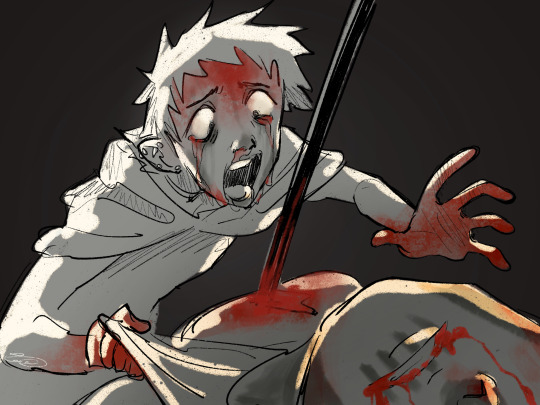
You are Harrowhark Nonagesimus. You are 17. They just killed your only friend.
#the locked tomb#gideon the ninth#griddlehark#gideon nav#gideon the ninth spoilers#harrowhark nonagesimus
896 notes
·
View notes
Text
The Fourth House:
Hope of the Emperor


The Fifth House:
Heart of the Emperor



The Sixth House:
The Emperor's Reason

The Eighth House:
the Forgiving House

quite funny, isn't he?
100 notes
·
View notes
Text

649 notes
·
View notes
Text
Ares is not the protector of women in greek mythology.
He is never presented as such in any source, there is no evidence such a role was ever assigned to him in any account, and as far as I'm aware this popular yet unattested assertion is born from the echo-chambers of tumblr. In fact quite the opposite could be argued. CW for sexual assault.
This baffling claim seems to originate from a sort of shallow examination of the way Ares "behaves in myth", and the following arguments are the most frequently presented:
1. Ares protects his daughter Alkippe from assault, and is therefore morally opposed to rape. (Apollodorus 3.180, Pausanias 1.21.4, Suidas "Areios pagos", attributed to Hellanikos)
Curiously this argument is never applied to, for example: Apollo for defending his mother Leto from Tytios, Herakles for defending Hera from Porphyrion (or his wife Deianeira from Nessos), or Zeus for defending his sister Demeter from Iasion (in the versions where he attacks her), among other examples. The multiple accounts of rape of the previously mentioned figures did not conflict with these stories in greek thought: they're defending family members or women otherwise close to them. This sort of behaviour is not uncommon, even in contemporary times, e.g. a warrior has no ethical problem killing men, but would not want his own family or loved ones to be killed. The same goes here for sexual assault.
2. There are no surviving accounts of Ares sexually assaulting anybody.
The idea that the ancient greeks pictured that, among all the gods, Ares was the only one who shied away from committing rape borders on ridiculous. In this case absence of evidence is not evidence of absence.
The majority of surviving records of Ares' unions are presented in a genealogical manner, and do not go into details about the nature of said unions. This is by no means uncommon for most mythographers, where most sexual encounters are presented as such, and details of specifics are to be found elsewhere. However, common motifs that are found in other accounts of rape also appear in stories concerning Ares' relationships, e.g. tropes like shape-shifting/the use of disguises, the victim being a huntress, secrecy, and the disposal of the concieved child, are to be found in the stories of Phylonome and Astyoche respectively:
Φυλονόμη Νυκτίμου καὶ Ἀρκαδίας θυγάτηρ ἐκυνήγει σὺν τῇ Ἀρτέμιδι: Ἄρης δ᾽ ἐν σχήματι ποιμένος ἔγκυον ἐποίησεν. ἡ δὲ τεκοῦσα διδύμους παῖδας καὶ φοβουμένη τὸν πατέρα ἔρριψεν εἰς τὸν Ἐρύμανθο
"Phylonome, the daughter of Nyktimos and Arkadia, was wont to hunt with Artemis; but Ares, in the guise of a shepherd, got her with child. She gave birth to twin children and, fearing her father, cast them into the [River] Erymanthos." (Pseudo-Plutarch, Greek and Roman Parallel Stories, 36)
οἳ δ᾽ Ἀσπληδόνα ναῖον ἰδ᾽ Ὀρχομενὸν Μινύειον,
τῶν ἦρχ᾽ Ἀσκάλαφος καὶ Ἰάλμενος υἷες Ἄρηος
οὓς τέκεν Ἀστυόχη δόμῳ Ἄκτορος Ἀζεΐδαο,
παρθένος αἰδοίη ὑπερώϊον εἰσαναβᾶσα Ἄρηϊ κρατερῷ: ὃ δέ οἱ παρελέξατο λάθρῃ: τοῖς δὲ τριήκοντα γλαφυραὶ ��έες ἐστιχόωντο.
"And they that dwelt in Aspledon and Orchomenus of the Minyae were led by Ascalaphus and Ialmenus, sons of Ares, whom, in the palace of Actor, son of Azeus, Astyoche, the honoured maiden, conceived of mighty Ares, when she had entered into her upper chamber; for he lay with her in secret" (Homer, Iliad 2. 512 ff)
In neither of these cases is a verb explicitly denoting rape used, though it is heavily implied by the context. The focus of the action is on the conception of sons, the nature of the interaction is secondary.
Other examples are found among the daughters of the river Asopos, who where (and here there's no confusion) ravished and kidnapped by different gods to different parts of the greek world, where they found local lines through children borne to their abductors and serve as local eponyms. Surviving fragments from Corinna of Tanagra tell:
"Asopos went to his haunts . . from you halls . . into woe . . Of these [nine] daughters Zeus, giver of good things, took his [Asopos'] child Aigina . . from her father's [house] . . while Korkyra and Salamis and lovely Euboia were stolen by father Poseidon, and Leto's son is in possession of Sinope and Thespia . . [and Tanagra was seized by Hermes] . . But to Asopos no one was able to make the matter clear, until . . [the seer Akraiphen reveals to him] 'And of your daughters father Zeus, king of all, has three; and Poseidon, ruler of the sea, married three; and Phoibos [Apollon] is master of the beds of two of them, and of one Hermes, good son of Maia. For so did the pair Eros and the Kypris persuade them, that they should go in secret to your house and take your nine daughters." - heavily fragmented papyrus. Corinna, Fragment 654
"For your [Tanagra's] sake Hermes boxed against Ares." Corinna, Fragment 666
It seems that, similarly to the myths of Beroe or Marpessa, the abducted maiden is fought over by two competing "suitors", and though we can infer that the outcome of the story is that Hermes gets to keep Tanagra, apparently by beating Ares at boxing, we don't actually know what happened or how it happened. In any case, Ares does mate with another daughter of Asopos, Harpina, who bears him Oinomaos according to some versions (Paus. 5.22.6) (Stephanus of Byzantium, Ethnica, A125.3) (Diodorus Siculus, Library 4. 73. 1). There is little reason to suppose this encounter wasn't pictured as an abduction like the rest of her sisters.
The blatant statement that each of his affairs was envisioned as consensual is simply not true.
3. He was worshipped under the epithet Gynaicothoinas "feasted by women"
This was a local cult that existed in Tegea, the following reason is given:
There is also an image of Ares in the marketplace of Tegea. Carved in relief on a slab it is called Gynaecothoenas. At the time of the Laconian war, when Charillus king of Lacedaemon made the first invasion, the women armed themselves and lay in ambush under the hill they call today Phylactris. When the armies met and the men on either side were performing many remarkable exploits, the women, they say, came on the scene and put the Lacedaemonians to flight. Marpessa, surnamed Choera, surpassed, they say, the other women in daring, while Charillus himself was one of the Spartan prisoners. The story goes on to say that he was set free without ransom, swore to the Tegeans that the Lacedaemonians would never again attack Tegea, and then broke his oath; that the women offered to Ares a sacrifice of victory on their own account without the men, and gave to the men no share in the meat of the victim. For this reason Ares got his surname. (Paus. 8.48.4-5)
As emphasised by Georgoudi in To Act, Not Submit: Women’s Attitudes in Situations of War in Ancient Greece (part of the highly recommendable collection of essays Women and War in Antiquity), "it is not necessary to see the operation of an invitation in the bestowal of the epithet Γυναικοθοίνας on Ares". The epithet is ambiguous, and can be translated both as "Host of the banquet of women" or "[He who is] invited to the banquet of women". In any case no act of divine intervention occurs, and the main reason for the women's act of devotion lies principally in recognising their decisive role in the routing of the Lakedaimonians. They invite Ares to the banquet, the men are excluded.
Also this a local epithet that isn't found anywhere else in Greece. As such it would be worth reminding that not every Ares is Gynaicothoinas, in the same way not every Zeus is Aithiopian, not every Demeter Erinys, or not every Artemis of Ephesos.
4. He is the patron god of the Amazons
He was considered progenitor of the Amazons because of their proverbial warlike nature and love of battle, the same reason he was associated with another barbarian tribe, the Thracians. In this capacity he was also appointed as a suitable father/ancestor for other violent and savage characters who generally function as antagonists (e.g. Kyknos, Diomedes of Thrace, Tereos of Thrace, Oinomaos, Agrios and Oreios, Phlegyas, Lykos etc.). Also he was by no means the only god connected with the Amazons (they were especially linked to Artemis, see Religious Cults Associated With the Amazons by Florence Mary Bennett, if only for the bibliography).
Similarly Poseidon was considered patron and ancestor of the Phaiakians mainly because of their mastery over the art of seafaring, and was curiously also credited in genealogies as father to monsters and other disreputable figures.
On another note I have found no sources that claim he taught his amazon daughters how to fight, as I've seen often mentioned (though I admit I'd love to be proven wrong on that point).
Finally, the last reason Ares is never portrayed as a protector of women is because of his divine assignation itself:
The uncountable references to his love of bloodshed and man-slaying don't just stop short of the battlefield, but continue on to the conclusion and intended purpose of most waged wars in antiquity: the sacking of the city. The title Sacker of Cities as an epithet of Ares (though it is by no means exclusive to him) is encountered numerous times and in different variations (eg. τειχεσιπλήτης or πτολίπορθος), and the meaning behind the epithet is plain. Though it is hard to summarise without being reductionist, the sacking of a city entails the plundering of all its goods, the slaughtering of its men, and the sistematic raping and enslavement of the surviving women (for the most famous depictions see The Iliad, The Trojan Women or The Women of Trachis, to name a small few of the literary references). There is little need to emphasise that war as concieved of in ancient greece, especifically the aspects of war Ares is most often associated with, directly entail sexual violence against women as one of the main concerns. The multiple references to Ares being an unloved or disliked deity are because of this, because war is horrifying (not because his daddy is a big old meany who hates him for no reason, Zeus makes very clear the motive for his contempt in the Iliad (5. 889-891): "Do not sit beside me and whine, you double-faced liar.
To me you are most hateful of all gods who hold Olympos. Forever quarreling is dear to your heart, wars and battles.")
Ares was only the protector of women inasmuch as he could be averted or repelled:
"There is no clash of brazen shields but our fight is with the war god, a war god ringed with the cries of men, a savage god who burns us; grant that he turn in racing course backward out of our country’s bounds, to the great palace of Amphitrite or where the waves of the thracian sea deny the stranger safe anchorage. Whatsoever escapes the night at last the light of day revisits; so smite him, Father Zeus, beneath your thunderbolt, for you are the lord of the lightning, the lightning that carries fire. (Oedipus Tyrannos, 190-202)
~~~~~
All that being said, this is a post about Ares as attested and percieved in ancient sources, made especifically in response to condecending and self-victimising statements about how "uhmmm, actually, in greek mythology Ares was a super-feminist himbo who was worshipped as the protector of women and was hated by his family for no reason, you idiot". It is factually incorrect. HOWEVER, far be it from me to tell anyone how they have to interact with this deity. Be it your retellings, your headcannons or your own personal religious attachments and beliefs towards Ares, those are your own provinces and prerogatives, and not what was being discussed here at all (I personally love retellings where Ares and Aphrodite goof around, or art where he plays with his daughters, or headcannons that showcase his more noble sides, etc.)
~~~~~
I've seen that other people on tumblr have made similar posts, the ones I've seen were by @deathlessathanasia and @en-theos . I have no idea how to link their posts, but they're really good so go check them out on their pages!
119 notes
·
View notes
Text

#the locked tomb#tlt#tlt series#tlt spoilers#harrowhark nonagesimus#harrow nonagesimus#tlt harrow#harrow the ninth
114 notes
·
View notes
Text
Oh, my Sun and Stars. This is gorgeous
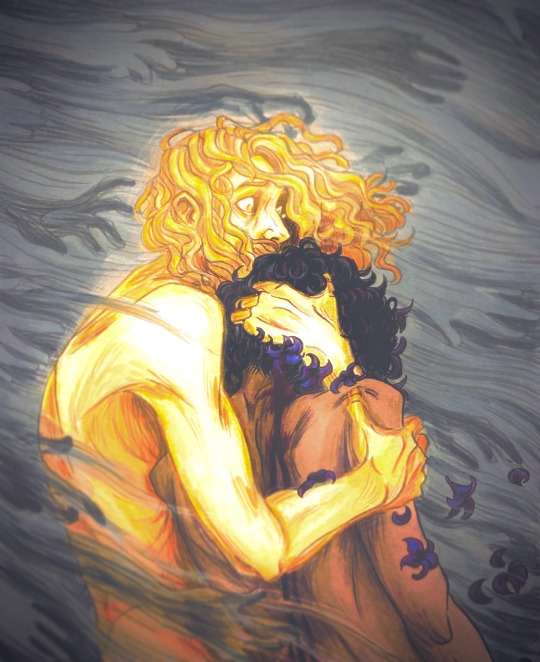
The Death of Hyacinthos.
#artists on tumblr#greek mythology#apollo#hyacinth#zephyrus#Myth of Hyacinth#art#Greek mythology art
2K notes
·
View notes
Text
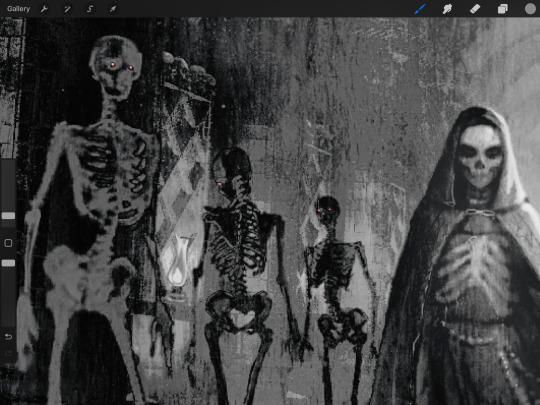
new art and process stuff up on patreon
855 notes
·
View notes
Text
Harrow the Ninth, Thoughts part 2
There's a parallel between Harrow and Humanity in The Locked Tomb that I find terrifying as a Biologist.
Harrow, is the sum of 200 children, sacrificed to create one Child.
Humanity, to be Killed and Ressurected, Jod released the Ressurection Beasts. These have been going around, attacking planets with life, in their madness as revenants.
To combat and stop these Beasts, Jod and the Lyctors have been Killing Planets. Harrow says that most of these life forms on planets are simple, bacteria or other single celled organisms.
Evolutionary speaking, these are the beginnings of life, baby or child biospheres.
Jod and the Lyctors are doing what Harrow's parents have done to have her, but on an unimaginable scale. They are killing Planets on the first steps of life, Infant Biospheres, strangling them in their cradles, for the sake of ONE FORM OF LIFE: HUMANITY.
No wonder John tells Harrow it's not her fault, he knows what her parents did, how it feels like. I think, that's why he puts a lot of focus on Harrow. He wants to know that what he is doing is worth it, and perhaps Harrow is proof of that.
166 notes
·
View notes
Text
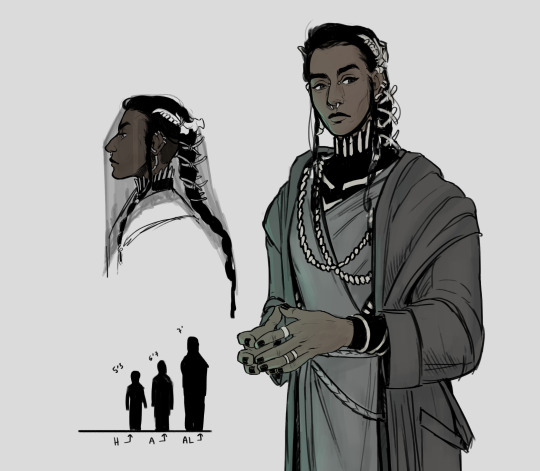
I'm giving Anastasia a try, on the fence
#this is legit one of my fave Anastasia designs#Spectacular Job OP#I have written 3000 words for this woman out of the crumbs we have#and i'd do it again#the locked tomb#tlt#anastasia the first#art#anastasia the ninth
3K notes
·
View notes
Text
It also requires a shit ton of critical thinking and literary analysis skills. And a good chunk of knowledge of various cultures symbolism parallels, folklore.
Like it's a solid read even if you don't know all of that. But if you do.... it's a rabbit hole you don't want to get out of. For me, it makes the experience 1000 times better. This series are *chef's kiss*
I don't say this as an insult to YA fiction because there are some amazing works in that genre, but The Locked Tomb is absolutely not YA fiction. It's almost an advanced science textbook
#its an incredible read.#it brings out the literary academic in me#And i havent done anything literature related since high school#I have enjoyed this series more than words can describe.#and like the sumbolism#the themes#Love in all its aspects#and not the diabetes inducing surface level romance thats been going around in media#Noooo its the I d kill for you and die for you and merge out souls together without ever saying that its love#Cause yes it's an emotion complicated af#and the books represent it as complicated af#And I AM HERE FOR IT
228 notes
·
View notes
Text
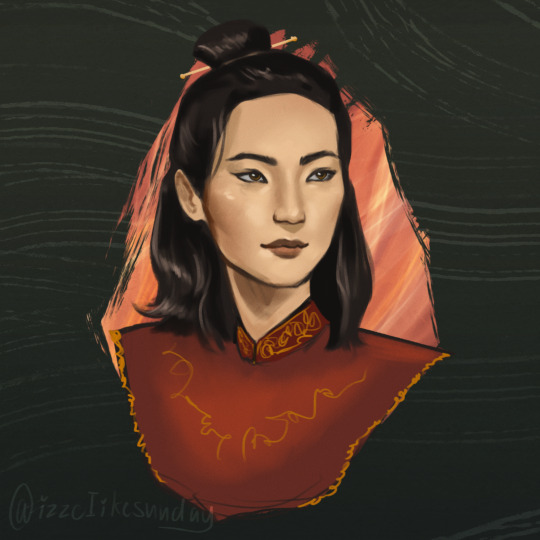



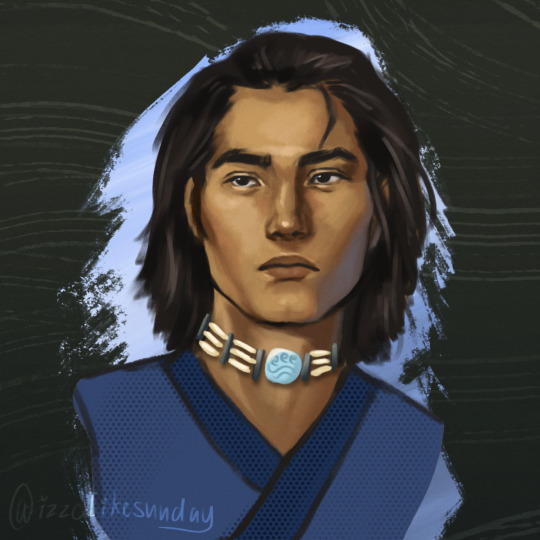

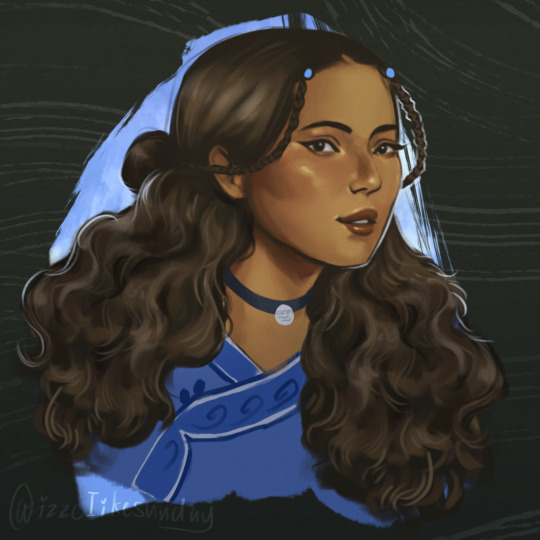
earthly attachments 🌊🪨🔥🌬️
due to popular demand i added kavik!!
(edit: omg tumblr RUINED the quality so i added the solo portraits 😭)
714 notes
·
View notes
Text






i am begging you all to stop treating this site like instagram if you dont want it to be content free by next year
#someone had to come out and say it#honestly#Like I made the same mistake when I first came in on Tumblr#But dudes its not how it works#thank you op
156K notes
·
View notes
Text
Someone said "Are you really so stupid to think that Africa has the same technological advances as us? If they did they would probably have clean water and not live in houses made of sticks and mud. Get over yourself and stop being so ignorant."..... Below is a tiny collection of images of the Africa they refuse to show you..




ches






I’m sorry you’ve been made to believe that the whole of Africa is poor, I really am..
785K notes
·
View notes
Text
The Night Circus Impressions #1
So, I started reading the Night Circus today, (and I can feel that half-written paper for my ICU class glaring at me, but who cares). And I am intrigued.
SPOILERS FROM HERE AN ON in case someone else also lived under a rock and only now is reading the book.
Granted I am a measly 28 pages in, but I already have quite a few opinions, and I am trying to keep my brain from diving too far in character analysis so soon. But so far I rly like the contrast between Prospero/ Hector and "Alexander".
The initial impression, albeit only for a few lines as they meet for the first time would have you believe that perhaps Hector is kind of the better option of the two, for a mentor. But that's how he is initially presented to us. He is presented as rly charismatic, and magnetizing and well, he is a performer. Alexander on the other hand comes off as stand offish and entirely too critical, and perhaps a bit cold.
As the narration continues though, we see that Hector has this... obsessive almost interest in his daughter's abilities and to the external observer he seems to look for ways to exploit them, even as he "trains" her. I cannot find the exact word for it, but he treats it like a business opportunity. He sees her abilities, her "Talent" and not her. And he only seems to care for it too. He is eccentric and awfully insistent in participating in that so called game, and from what I have seen so far in the narration he is petty and cruel even at times. He is wholly uninterested in what she likes and all but fights her for it -although at a later point he seems to have stopped antagonizing her interest for books so much, and he uses her like a circus attraction of sorts with her readings. I rly want to see where this goes as the book progresses
Then we have the man in the grey suit. Stand offish though he is, he seems to take greater care of his mentee than Hector. And a completely different approach to their capabilities. We see runes and symbols, we see him disapproving of Hectors theatrics. He is presented as more steadfast and methodical, and when he imparts something to Marco it feels more direct and clear, even to the reader. He also seems to be an absent enough, but somewhat caring figure, if only for the purposes of the game and Marco's training. He is no less aloof and secretive than Hector, but so far, through the boy's eyes he seems to be doing a far better job at preparing him for the game.
Reading abt those two feels like watching an argument about whether innate ability or talent is better than practicing or training.
Anyhow, I am going back to that paper.. ugh, More thoughts when I progress a bit with the plot.
See y' all later
#the night circus#Hector Bowen#Alexander the night circus#celia bowen#marco alisdair#character analysis#somehow#I am like 30 pages in so...#I'll get back to you soon
2 notes
·
View notes
Text
Ugh, was having a great time mocking my recently imprisoned rival when I noticed the camera positioning makes it so that I appear behind the bars, thus framing me as trapped in a metaphorical prison of the narrative, now my whole day is ruined. Fuck.
105K notes
·
View notes
Text
Poe’s Annabel Lee in TLT #2
You thought I'd never post it huh? Well about a month later, here is the beast. Enjoy!
We have already delved into the most obvious parallel that the TLT books create, between John and Alecto and the heroes of Poe’s Annabel Lee. I would like to now draw some comparisons between Gideon and Harrow and Annabel Lee. This might seem a bit far-fetched, because how can John and Alecto AND Gideon and Harrow exist in the same premise within Poe’s lines?
The answer is simple. They don’t. Contradictory, I know, but a lot of that comparison and many of those parallels stem from the fact that those two pairings themselves are reflections of one another. Or perhaps picture negatives. After all, what John and Alecto had, stems from love, and it is plainly stated – as plainly as all things in Muir’s writing are, at least – whereas the beginning of Gideon and Harrow’s relationship sprouts from unadulterated loathing. We learn afterward of course that this is not really the case, what with Gideon sacrificing herself in an act she perceived as the only act of Love, she could offer to Harrow and whatnot. But the parallels are there. And it is deliberate, for John and Alecto broke the world, and Gideon and Harrow will remake it – or die trying. Muir has a wonderful way of interweaving elements in the plot and creating comparisons, parallels, and antitheses between the countless colorful dynamics in the books. So, I feel where John and Alecto broke the world, and are going to -probably – die, Gideon and Harrow will step up and mirror them, bringing hope back to the world. As @local-selkie said, the series probably won’t end without hope. Hope for reconciliation, for fixing what has been irrevocably broken, hope for breaking circles and hope for a better tomorrow. (Yeah well, I may be a cynic, but I am human above all, and if there is one thing that humans yearn for, live for and fight for, it’s hope. Naïve, childish, hope. It’s what makes us better, I think)
Onto drawing a few parallels now,
It was many and many a year ago
In a kingdom by the sea
That a maiden there lived whom you may know
by the name of Annabel Lee
Not really much to say about this one. Our story for these two starts about twenty years ago, in far off Pluto – well, the Ninth – with the salty ass underground (might point to there having been saltwater there at some point) where Wake collapsed dead, and a wailing Gideon was found. Harrow had not yet been born, and frankly neither of them would be what one would call a fair maiden.
And this maiden she lived with no other thought
than to love and be loved by me
I was a child and she was a child
In this Kingdom by the Sea
Here I feel we could consider this a reference to the shared childhoods of our heroines. The lonely, shared childhood of our heroines. For there were no other children on the Ninth, and they bitterly clung to each other with all they had. Even if it means beating each other into a pulp within an inch of their lives. Because Harrow was a child, and Gideon was a child on the far off Ninth, where there were no other children, and all they had was each other and their rivalry. So, I can see the whole “she lived with no other thought” than finding a way to make each other’s life hell. And as we see going forward in the books, that was all they could do to love each other, the only way they knew how.
But we loved with a love that was more than love—
I and my Annabel Lee;
With a love that the winged seraphs of heaven
Coveted her and me.
We loved with a love that was more than love, we loved with a love that felt like hatred, with a devotion that felt like abandonment, because Gideon could think of no greater act of love than sacrificing herself for Harrow, than letting Harrow consume her, and Harrow could think of no fate worse than that. Harrow loved Gideon so much the greatest act of service, of devotion, of love she could think to offer to her ill-matched cavalier was to spare her, to let her live. And they both failed spectacularly at that, but oh well. Angst.
As for the analogue to the seraphs, this is a bit trickier than John and Alecto. Because for them it’s obvious it’s the rest of the Lyctors, the Lyctors that couldn’t compete with John’s monster cavalier, the Lyctors that could never achieve their perfect connection. But who could it be that covets the connection between Harrow and Gideon? I think to be able to imagine an answer to that we should take a step away from the narrative and look at them from everyone else’s perspective. For the Niners it’s a no brainer. They know Gideon, they know Harrow, they would never think of a worthy connection between the two as highlighted by Crux’s words in NtN (and goodness if that didn’t hurt). But what about the Canaan House? Contrary to Harrow’s insecurities and paranoia, to the external observer they do present a united front. The two black clad nuns of the Ninth, with their veils and their disconcerting face paint, with their creepy/ damning/ borderline heretical prayer, the tiny unhinged necro, and the huge, silent Cav that disarmed Magnus in three moves, that seem so in sync it’s almost uncanny (“Death first to vultures and scavengers - AN ICON). So, I could see, the rest of the people in Canaan House at least envying their connection a bit, (if they haven’t already figured them out – like Pal and Ianthe), at least at first glance. And then there is ofc SYLAS OCTAKISERON, (I hate him, I am sorry, but if I could stick him headfirst to the ground I would). The Eighth generally isn’t that fond of the Ninth so no surprise there. I am rly not sure how the OG Lyctors would feel abt them but if you have any ideas feel free to share.
And this was the reason that, long ago,
In this kingdom by the sea,
A wind blew out of a cloud, chilling
My beautiful Annabel Lee;
So that her highborn kinsman came
And bore her away from me,
To shut her up in a sepulchre
In this kingdom by the sea.
The angels, not half so happy in heaven,
Went envying her and me—
Yes!—that was the reason (as all men know, In this kingdom by the sea)
That the wind came out of the cloud by night,
Chilling and killing my Annabel Lee.
Alright, so as I mentioned before, this is where the tone shifts to something more chilly, if you will. No more fairytale notions – as much as Gideon and Harrow can be perceived as a fairytale. But if we want to be particular abt Gideon and Harrow’s timeline this is the exact point where Harrow makes herself a mausoleum for one more soul, Gideon. (The pain though). I know that at first, I interpreted kingdom by the sea as the Ninth, for Gideon and Harrow, but here I think it is safe to assume that it is referencing earth again, aka the First, where the final showdown for GtN is taking place. The highborn kingsman, I think again references the Lyctors only this time we are talking Cytherea, that forced Gideon’s hand, in sacrificing herself and Harrow partly consuming her. And now Gideon is a part of Harrow, locked away in her - soon to be lobotomized - temporal lobe.
And obviously Harrow aches for Gideon, for she never wanted this to be her fate. She consumed her out of necessity, not out of want. It is the process of Lyctorhood itself that comes and takes Gideon from Harrow, that causes this painful sacrifice, and has her clutching at whatever remnants of Gideon she has, as hard as possibly, with no plan whatsoever, but to preserve her, thus rendering Gideon’s sacrifice pointless.
But our love it was stronger by far than the love
Of those who were older than we—
Of many far wiser than we—
And neither the angels in heaven above,
Nor the demons down under the sea,
Can ever dissever my soul from the soul
Of the beautiful Annabel Lee:
And this is Lyctorhood ala Harrow. Aka rendering the whole procedure useless, because you love your cavalier so much you cannot bear the thought of killing and consuming them. (Or well, Lyctorhood ala Ninth House, because Anastasia attempted preserving Samael first. I mean we can see that the Ninth Necros love their cavs too much – They literally both went, Immortality and immense power? No, thanks, I don’t want it without my cav by my side. They’re both ambitious enough to try, however, and we saw what that cost them). I think that this part works as a foreshadow for Gideon and Harrow in the future, (for a hopeful future) as well as it is the part with the closest parallel to Alecto and John. Because part of Alecto is in Harrow and part of Gideon is John, and their love is enough that Gideon kills herself for Harrow, no regrets, and the stubborn, little, malnourished nunlet lobotomizes herself to spare Gideon being consumed into nothingness. So yes, their love transcended that of the other Lyctors and their cavs, because they refused to make the sacrifice, because they loved each other so much they found a way to at least stop the procedure, instead of just ling down and taking it (well Harrow did, Gideon was ready to die for her. And again. How Gideon thinks so little of herself she thinks she is better off as a sacrificial lamb, and Harrow in her endless guilt just refuses to let her – masterful and painful in equal measure. They both feel betrayed, because the other didn’t let them die, but wanted them to live.
As for the never severing the souls, I have two words for you. Perfect Lyctorhood. (Just an idea, but we’ll see)
For the moon never beams, without bringing me dreams
Of the beautiful Annabel Lee;
And the stars never rise, but I feel the bright eyes
Of the beautiful Annabel Lee;
And so, all the night-tide, I lie down by the side
Of my darling—my darling—my life and my bride,
In her sepulchre there by the sea,
In her tomb by the sounding sea.
Dreams of the beautiful Annabel Lee, like the coffee-shop au dream/hallucination Harrow has? Like the constant nightmares where her brain glitches replacing Gideon with Ortus?
I must admit that this part to me also highlights the connection between Harrow – Anastasia’s Line – and Alecto. Because we meet Alecto through the dreams, because Harrow sees Alecto in her sleeping and wakeful hours, because in the dream Harrow is Alecto and Alecto is Harrow.
The bright eyes of the beautiful Annabel Lee, Alecto’s golden eyes, Gideon’s golden eyes, and Harrow’s own dark ones, that while not bottomless pits are pretty dark in their own measure. Now the lying down next to my beautiful Anabel Lee part, is… tricky for those two. I honestly don’t have many ideas abt it. I can picture it as Kiriona and Harrow sitting next to one another in the Tomb, and together undoing what has been done, and then having their happy ending, but that’s as far as it goes. If we take the idea that Harrow is the mausoleum in which Gideon’s soul is preserved, I can imagine that the whole thing will happen in the River. Perhaps from an access point on the Ninth, but literally this part is the one I most struggle to interpret.
Of course, we also need to take the biblical connections into account, and those biblical connections are in large why there are so many parallels between the two pairings. You have God and his offspring, that sacrifices herself, you have Harrow, who in a sense is also Christ going down in Hades in the days before the resurrection, and you have Alecto. John is Gideon and Harrow is Alecto and it’s a glorious mess. We have parallels in a love that transcends all that was known before, we have it starting from what is perceived as hate but in reality, is the last strings of their sanity sticking together, with a few sprinkles of codependence. And again, is that love truly as beautiful as it appears?
We do tend to romanticize it a lot in the fandom, but ultimately, it’s a story about grief and loss. Harrow’s story is abt grief and loss and guilt. The future of the ninth was sacrificed for her to be born, her whole planet will be lost if she doesn’t find some way to help it, she has already lost so much and sacrificed so much to be where she is, and the last straw is Gideon’s death and coming back as Kiriona. And Gideon, Gideon that was born alone on the ninth that no one wanted, no one paid attention to but Harrow – Harrow who made her life a living hell yes, but Harrow who talked to her, even if it was just to exchange insults. Gideon abandoned by the world, that loved Harrow and harrow abandoned her too, in choosing not to utilize her sacrifice. Their stories are so interwoven with themes of love, loss, and grief, that the parallels are hard not to draw.
Anyhow, I am beat. I hope this makes sense. Feel free to add your own thoughts and comments, and don’t forget to take care of yourselves.
Till next time!
PS check out @katakaluptastrophy's post abt the descent of Christ/Harrow in Hades here.
It's spectacular, as usual (The articulation is so on point I cannot. I feel like a mad scientist reading a scholar's work every time). And perhaps with the Orthodox Easter approaching I might take the chance to revisit the scriptures myself.
And @fkapommel's post abt the duality of the Christ symbolism in Gideon and Harrow here.
I enjoyed this too much not to recommend it.
#the locked tomb#tlt#tlt series#tlt spoilers#john gaius#harrowhark nonagesimus#alecto the first#alecto tlt#harrow the ninth#alecto the ninth#gideon the ninth#gideon nav#harrowhark#alecto#nona the ninth spoilers#nona the ninth#tlt meta#tlt fandom#gideon the 9th#kiriona gaia#Annabel lee#poetry#literary parallels#literary analysis#tlt fan theory#Alecto and John mirror Harrow and Gideon#Or the opposite#They are each part of the other#One for damnation and one for salvation
36 notes
·
View notes
Text


griddleharlectostasia brainrot hours
#My fucking heart#the mirroring#I CANNOT#the dynamic between alecto and anastasia is sooo interesting#I can write pages for those two#and my goodness the color scheme#the reflection#the detail#GREAT JOB OP#i am loving it#gideon the ninth#the locked tomb#griddlehark#alectostasia#incredible
5K notes
·
View notes